|
\We are once again in the midst of the liturgical season of Lent. These forty days before the Triduum are opportunities to prepare ourselves to enter into the Passion of Christ through penitential practices such as prayer, fasting, almsgiving, and self-sacrifice. Done correctly, our Lenten practices can be cathartically cleansing as we imitate Christ’s forty days in the desert after His baptism. This incredible withdrawal of the Lord from the outside world to dwell on the calling of His Heavenly Father before the commencement of earthly ministry remains a model for us all. During Lent, the faithful do not isolate themselves from the world in fear but rather draw strength from Christ. Shaking off the comforts and complacencies of living in the world may be a bit jolting, but our ultimate goal is holiness; anything else is just a noisy distraction which can never truly satisfy our deepest desires. Today, technology has become integrated into our lives and relationships. Social media, the internet, and the incredible utility of our smartphones may occupy a large part of our daily attention. It’s no wonder we can find it harder to disconnect from the outside world. Indeed, while the proper and moderated use of technology can be beneficial, observing the dangers of failing to unplug from the world (i.e., harming real human connections), has helped deepen my appreciation for the isolation opportunities afforded by Lenten observances. Lent calls each of us to remember the ultimate sacrifice God Himself made on Good Friday. This salvific act is so significant that it cannot be restricted to just one day on the liturgical calendar. The Church commemorates Jesus’ Last Supper, Passion, and Death during the Triduum. As these days draw near, the faithful are called to prepare themselves to enter into the Paschal Mystery by putting aside our worldly comforts and imitating how our Lord spent precious time among His disciples before His death. While Lent is an increased time of preparation and time of intentional growth in holiness, the Church has no shortage of opportunities to deepen our relationship with the Lord year-round. Sunday Mass offers us the spiritual nourishment and proper grounding to start each week. The choices we make in the hours or days following Mass can build upon the scriptural and sacramental foundations laid during the service. Recommitting ourselves to our families and their needs can strengthen the love binding us together; praying with and serving each other builds up the domestic church. For example, volunteering to lead devotional prayers together as a couple or family is a beautiful expression of intimacy and faith. Additionally, during Lent and beyond, we may replace screen time with spiritual reading so we can be inspired by the writings of saints or theologians and discover new avenues of holiness for our lives. Certainly, we can sacrifice a worldly comfort during Lent, but we can also perform charitable works and make a difference in the lives of others during this season. Lent is not a diet! Lent is intended to bring us closer to God, Who is found not in the noise of the world, but in the quiet whisperings of an open heart. Prayer enables us to make room in our hearts for Him to dwell in the temples of our bodies and radiate through our lives. We cleanse ourselves of distractions that prevent us from the holiness He calls us to and we commit ourselves to prayer, fasting, and almsgiving. We repent of our sinful shortcomings and avail ourselves of the sacraments of the Church. Our desire to accompany our Lord can be fulfilled by our faithful vigilance in Eucharistic Adoration, especially in the nighttime hours when our “spirit is willing, but the flesh is weak.” Our Lord is present in the Eucharist we receive at Mass, the Sacrament we adore, the family we are a part of, and the people we serve. He is always ready to not just be a relegated part of our lives, but the core of our very being. The season of Lent can serve to motivate us to choose the better part rather than be complacent in the empty comforts of the world. Though we seek isolation from the distractions of the world to accomplish a meaningful and fruitful Lenten observance, we are promised by the Lord God Himself that we never walk alone when he says: “I am with you always, until the end of the age.” For more resources to accompany you throughout your Lenten journey, please click here.
0 Comments
Holy Week can be the most emotionally intense period of the liturgical year. Beginning with Palm Sunday, we notice some changes to the usual liturgy, namely: the opening reading, the much longer narrated Gospel, the red vestments, and the presence of blessed palms. As the week continues, our anticipation may be building towards an emotional peak, probably the commemoration of Christ’s death on Good Friday or His Resurrection on Easter Sunday. We may be tempted to take it all in stride and grimace at the raw details of Jesus’s sacred Passion while holding on for the joys of the Easter proclamation. We are, after all, the “Easter people and Alleluia is our song,” according to St. John Paul the Great. I have found myself guilty of this detachment sometimes and now propose, as we have already entered Holy Week, that we immerse ourselves into the intense details—that raw, human emotion—of the Triduum in order to accompany Christ more closely during the most significant moments of His earthly ministry and the fulfillment of salvific history.
On Palm Sunday, we celebrate the entrance of the Savior into Jerusalem, that sacred capital of the Jewish nation then occupied by the Roman Empire. The joys and uproars that Jesus’s entrance brings facilitate the events at the end of the week, when we observe the frenzied crowd turning against the One they now hail as the long-awaited Messiah. Of course, Jesus knows fully what will come to pass in the next days before the Passover. Do we stand among the crowds welcoming Jesus into our hearts and wanting Him to rule over us as the eternal Heavenly King, or are we like the jealous plotting authorities who resent Jesus over His exposure of our hypocrisy and prideful nature? The days between Palm Sunday and Holy Thursday are filled with anticipation. An observer of the times could tell something big was about to happen in Jerusalem. The holy city would soon be embroiled in the rancor sowed by the authorities against Jesus rather than preparing to celebrate the annual Passover meal. Are we spending this time of calm in prayer and preparation in the presence of the Lord, or are we going about our daily routine until we face the ugliness that has been fermenting against Jesus and that forces us to decide if we will stand against the crowds for the sake of the Savior? Holy Thursday arrives and already the focus may be towards the one evening Mass scheduled at the parish. Many dioceses celebrate the annual Chrism Mass earlier in the day, during which the sacred oils of ministry are blessed by the bishop and distributed among the parishes from the cathedral. In the evening, the Last Supper and the Agony in the Garden of Gethsemane are commemorated with liturgical richness: the humble washing of feet, solemn processions, chanting, the use of candles, Eucharistic adoration after the tabernacle is emptied, and then… silence. There is so much to unpack. We can ask ourselves: Am I heeding the Lord’s request to “Keep watch and pray”? Am I remaining vigilant and faithfully at the side of our Lord as he leads the Passover meal, praying with Him in the garden, or not abandoning Him during His arrest? We, of course, cannot celebrate Easter Sunday without recalling Good Friday. This year, I invite you to place yourself at the foot of the cross and gaze upon Christ crucified. With the Blessed Mother and St. John beside you, behold the sight of the suffering Savior, scourged and dying. Listen to His seven final words and feel their intensity. Here the cruelest injustices have been heaped upon Jesus; He bears them willingly and lovingly. Recall your own failings, which have driven nails and scourged the sacred flesh of our Lord. This can be a true time of repentance and faith. Do I offer even a fraction of the love being poured out from the cross this day? The darkness of Good Friday recedes, Holy Saturday arrives and there is…more silence. Our Beloved Lord has died and there is a sudden emptiness as we come to terms with the reality that the departed is gone. We must not gloss over this period before Easter Sunday: take time to mourn for our Lord and the human acts of sin which buried Him in the tomb. It had to occur, but it is not the end. We do not mourn for the dead as if we have no hope— because of the Resurrection, Christians do not fear death or even despise suffering. Jesus bore the worst in humanity with love and died to accomplish salvation for all who seek it. In the holy silence of Holy Saturday, am I reflecting on the events that have passed, long foretold by the biblical prophets, as Mary and the disciples did in the Upper Room? On Saturday evening, we experience the Easter Vigil. This extraordinary Mass begins in darkness outside the Church with the Service of Light in which a “blazing fire” is used to light the Paschal candle. This candle processes through the church and is used to light the unlit candles of all present. Nine readings from the Old and New Testament are read, recounting significant moments of salvation history. It is during this Mass that the Church also welcomes new members from the Rite of Christian Initiation of Adults into the Body of Christ. The congregation joins in the renewal of baptismal promises and recalls their own Sacraments of Initiation. In the wonder of this Easter Vigil, are we joining wholeheartedly in the joy and celebration of the Resurrection? Do we marvel at the re-telling of the mighty acts of God throughout human history? Do we rejoice in welcoming new members to the Church? Finally Easter Sunday, the world rejoices with the proclamation, Christus vincit! Christus regnat! Christus imperat! Christ conquers! Christ reigns! Christ commands! We proclaim Christ’s great salvific act but do not shy away from what He endured to accomplish that eternal victory. We glorify Christ who has ascended from the depths of death to rescue humanity and deliver them to the throne of God. Nothing like this has happened before. The world celebrates God’s great love! Do we joyfully proclaim Christ to those who have no hope in their lives, who yearn for meaning and purpose? By taking the time each day of Holy Week to reflect upon the nuances and details of these great events in Scripture, we can better prepare for the emotional gravitas of the liturgies this week and accompany Christ himself. The graces of standing firm and being witnesses to His Passion can yield the same reward first achieved by the good thief crucified next to Jesus, to whom Christ declared, “Today you will be with me in Paradise.” For more resources to accompany you in your Lenten and Easter journeys, please click here. Holy Week is one of my favorite weeks of the year; each of the days builds with anticipation and I get excited just by the thought of Easter Sunday. Lent is almost through and it’s almost time to be joyful in the Risen Lord. When I was little, I felt this anticipation and excitement too. I would spend Holy Week letting people know that Easter was only a couple short days away—it felt like spring would officially be here as soon as we woke up on Easter Sunday! “The very best holiday of the year” was coming, and I had to get ready for it! Did I fully understand it was Christ that I was waiting for or did I just want to wear my new white shoes for church? Looking back, although it could have been the new Easter shoes, I think my 10 year-old-self would have agreed that I really was waiting for Holy Week as the final stretch to the finish line on a journey that began on Ash Wednesday.
In today’s Gospel reading, we read about moments of betrayal and loyalty. Judas leaves the Last Supper to betray Jesus while Peter in his humanity says that he will never deny him. I find it to be one of the most powerful Gospels of Holy Week. Here’s why: Like Peter, we are called to be disciples whose repentance leads to an experience of God’s forgiveness. Jesus knows that his friends will betray him and that he has limited time left on Earth. On one hand, Judas tries not to be obvious about his deception as he leaves the table, and on the other hand, Peter publicly tells Christ that he will stand by him and never fail him. Ultimately, both men betray Jesus, but it’s Peter who seeks forgiveness and allows himself a second chance. Judas, on the other hand, is overcome with guilt and despairs that his sin is beyond the reach of God’s mercy-- eventually taking his own life. We are like Peter in so many ways! We say we love Christ and that we could never deny him, but at the first sign of pressure we sin and turn our backs on him. How often have we chosen to do something that pulls our hearts from Jesus? It is during Lent—especially during Holy Week—that we recall the pain we’ve caused Christ. This week and each day, Jesus gives us another chance to say to him, “Forgive me; I have sinned.” When Christ meets his disciples after his Resurrection, he asks Peter, “Do you love me?” Let us respond with Peter this Easter, “Yes Lord, you know that I love you!” As Easter approaches, we remember how much we are loved by Christ in his Passion, death on the Cross, and soon to be Resurrection. In these next few days, I challenge you not to say, “Lord I could never deny you!” but instead, “Forgive me Lord, for I have sinned.” Last year on Good Friday, Pope Francis said, “Lord Jesus, always grant us the grace of holy repentance...the spark of hope is lit in the darkness of our despair, because we know that your only measure for loving us is to love us without measure.” This Holy Week, in this time for “holy repentance,” let us make sure to spend these last days in Lent with our hearts preparing for Easter. May we use these remaining days in the desert as a time for forgiveness and allow our hearts to be loved by Christ. May all of our hearts gleam with anticipation for Holy Week and better knowledge of the Risen Lord! On the evening of our wedding, after the ceremony and reception, my husband and I knelt down and washed each other’s feet. It was an act of love and humility that we wanted to be the foundation of our marriage. We had a beautiful example: A King who washed the feet of peasants; a Savior who washed the feet of sinners; a Friend who washed the feet of betrayers. The washing of the disciples’ feet was the act of a dying man. With the last few moments of his precious life, Jesus knelt down. In the last hours with his closest friends, he served. This was the manifestation of the new commandment he was to give moments later at the Last Supper: “Love one another. As I have loved you, so you also should love one another.” Love. This is what it is all about—the meaning of the Christian life. Jesus models love by washing not only the feet of his beloved friends, but of those who will betray him. He knows not only of Judas’ betrayal, but also of Peter’s—which probably stung him even more. He knows Peter, James, and John will fall asleep with him in the Garden. He knows that almost all of his disciples will flee during his torture and crucifixion. And yet he removes his outer garments and kneels to wash their dusty feet. It would not have been a pleasant affair; their feet would have been caked in dirt and bathed in dust. Perhaps their toenails were long. The feet of these gruff men would have stunk. But I do not imagine that Christ poured just a few drops of water on their feet ceremoniously and then moved on. I believe he spent a few quiet moments with each Apostle, truly washing their feet clean of dirt and grime, and making each feel like the only person in the room. I imagine him drying them tenderly, and looking up with eyes that said, “I do all of this for you.” Were the Apostles embarrassed by such a vulnerable display of affection? Scripture tells us that Peter recoils and says, “You will never wash my feet.” For one man to kneel down and wash the feet of another required vulnerability. For the King of Kings to kneel down and wash the feet of sinners required sacrificial, humble, earth-shattering love. This love culminates for us this week on Good Friday, when we commemorate the crucifixion and death of Christ. While the Church remembers the washing of the disciple’s feet on Holy Thursday, my husband and I have started a tradition of washing each other’s feet on our anniversary. Most recently, we did this on Valentine’s Day. On the day our culture celebrates love, it seemed appropriate to once again remind ourselves of what love actually looks like. Has anyone ever washed your feet? Perhaps it was part of a Holy Week service at your church or school. Perhaps it was part of a retreat you went on. To have your feet washed is an intimate experience. I think it is often more uncomfortable for the one getting their feet washed than it is for the one doing the washing. In my case, I’m usually worried my feet smell or that my nails aren’t groomed. I’m so worried about what my feet will reveal about me and what the other person is thinking that it’s hard for me to enjoy and appreciate the solemnity and beauty of this moment. Perhaps my thoughts echo Peter: “You will never wash my feet.” As we draw nearer and nearer to the pinnacle of our faith celebrated in the Triduum, we are probably coming to the end of Lent with dusty feet. We’ve trampled for about forty days in the desert and have probably stumbled in our Lenten observances a few times. Our feet may be caked in inadequacy, sin, or weakness. Maybe you, like me, are thinking so much about what’s on your feet that you’re unable to look Christ in the eye and allow him to thoroughly wash you. As we enter into Holy Week, I invite you to pray about what keeps you from allowing Christ’s gaze to meet your own. What causes you to join Peter in saying, “You will never wash my feet”? As Pope Francis said during his Apostolic Visit to Cuba, Jesus “came precisely to seek out all those who feel unworthy of God, unworthy of others. Let us allow Jesus to look at us. Let us allow his gaze to run over our streets. Let us allow that look to become our joy, our hope.” Christ’s response to Peter’s hesitancy is: “Unless I wash you, you will have no inheritance with me.” Perhaps he is saying that we will be unable to live a life of discipleship if we have not experienced his gaze—the sacrificial love of God. It is this encounter with Christ, with his gaze, that transforms us. We love because we have first been loved—this is our joy, our hope. This Easter season, may you experience Christ’s life-changing gaze as you allow him to wash your feet. Questions for Reflection: What keeps you from allowing Christ’s gaze to meet your own? What causes you to join Peter in saying, “You will never wash my feet”? For more resources to accompany you during the Lenten and Easter seasons, please click here. For many families it’s a Thanksgiving tradition to go around the table and express what each person is thankful for before digging into the meal. Families may share many of the same reasons they give thanks, though each person is often impacted differently or expresses their gratitude uniquely. This type of intentional gratitude sets the preparation-intense Thanksgiving meal apart from every other bread breaking (or rather turkey wishbone-breaking).
Giving thanks is, of course, not limited to just the third Thursday of November. Opportunities and reasons to give thanks are infinitely abundant throughout the year. It’s not just about speaking about gratitude, but living it as a blessing in life from God Almighty. This time of Thanksgiving in the United States reminds me that “… all good giving and every perfect gift is from above, coming down from the Father…” Whether we realize it or not, we give thanks to God each Sunday in and with our parish community. When the faithful gather for Mass, they gather for the Eucharist (which means “thanksgiving” in Greek). Just as when Christ Himself instituted the Eucharist at the Last Supper two thousand years ago, the Mass commemorates the real sacrifice of God the Son in atonement for the sinful debt humanity had incurred. In St. Luke’s account, our Lord, knowing that His Passion was to come, “eagerly desired” to share the Passover meal with His disciples. During the meal, Jesus gave thanks to His Father for the True Bread, His Body, that would be broken for us. That is, He thanked the Father that He was able to offer Himself for our redemption (cf Luke 22:22). Since Christ Himself set this standard for us to express our gratitude in life, let us strive to imitate Him and look for opportunities to give thanks, even in the midst of suffering. As the Sacrifice of Holy Mass is the ultimate prayer humanity can offer, it is the perfect opportunity to express our prayerful thanksgiving to God. The priest gathers the intercessions of the faithful into the prayer offered before the Liturgy of the Eucharist. Usually there is a petition to offer one’s personal prayers in the silence of his or her heart. At this I often marvel: what private needs are being prayed for by my fellow parishioners? What circumstances are awaiting my fellow Christians once they depart the church’s pews? That itself presents to me a witness to be grateful for: each person who wanders into a church seeks help from the One he or she knows will certainly and lovingly listen and answer. These are touching acts of faith in our God, who provides meaning and comfort to suffering, longing, confusion, and loss! An “attitude of gratitude” is a worthy daily pursuit. It can begin each morning as we remember that life is a gift from God! This attitude can flourish when applied to circumstances of daily life: Thank God I arrived safely. God protected me from that distracted driver! I’m so glad to hear her injury wasn’t serious and recovery is going well. I am grateful to have a forgiving, patient, and loving spouse, especially this morning! I am thankful for this job God has blessed me with to support my family. Let us remember to thank God who so richly blesses us every day, especially through those who touch our lives and care for us. Offer prayers and love to God and to your neighbors, not just during the Thanksgiving meal, but in church, during phone calls (call your parents!), and in other run-ins. May our prayers echo that of the biblical Job, who despite great sufferings and loss faithfully prayed to God, “The LORD gave and the LORD has taken away; blessed be the name of the LORD!” Questions for Reflection: What are you most grateful for this Thanksgiving season? How can you practice a spiritual attitude of gratitude each day? On September 14th, we celebrate the feast day of the Exaltation of the Holy Cross. In the Gospel of John, Jesus tells us: “No one has greater love than this, to lay down one's life from one's friends” (John 15:13). That love is never more evident than our Lord's passion and death on the Cross. By that Holy Cross, we have been redeemed. Jesus Christ foretold his Passion to the Apostles, instituted the Eucharist at the Last Supper, and fulfilled God's plan for human salvation at Calvary upon that Holy Cross. This, my friends, is the greatest love ever known to humankind; by the grace of God, we will come to know the fullness of God's love in eternity. The promise of eternal salvation was made possible upon that Cross and we, as Catholics, are called to pick up our cross and follow Christ daily. This is a very hard thing to accomplish in today's world.
Jesus gave us the Holy Spirit at Pentecost to guide and strengthen us while following his commands. Paul tells us: “I have the strength for everything through him who empowers me” (Philippians 4:13). Jesus Christ empowers us with the Holy Spirit today just as he did with the Apostles. It is exactly that God-given power that we need in today’s often secular world to preach Christ crucified and “fight the good fight,” as St. Paul says. For if we profess Christ without recognizing and living his sacrifice on the Cross, we cannot be disciples of the Lord. Peter found that out when Jesus admonished him after the foretelling of his passion and death. I keep written on my desk calendar in my office and in my daily liturgical calendar, a Latin phrase that I think summarizes this idea: Lex orandi, Lex credendi, Lex vivendi - As we worship, So we believe, So we live. As we worship, so we believe, so we live. We must, through worship and prayer, “Love the Lord, your God, with all your heart, with all your soul, and with all your mind” (Matthew 22:37). We must believe all that Jesus has taught us, that he is our Lord and Savior, and that he suffered and died so that we may live. We must live out our faith in what Jesus has called us to do by spreading the good news and picking up our cross and following our Lord. This is not an easy task. It isn't easy being a Christian. Christ never said it would be easy. Being a Christian is not just being a member of a religion, it is our way of life. We live the faith Christ gave to us. When we struggle with this, when we get lazy or complacent with our prayer time, or if we need a reminder of just how much we are loved and what our calling is, we need only to gaze upon the Holy Cross. We can also reflect on the Prophet Isaiah, when he told us exactly what Christ has done for us and for the salvation of man: "Yet it was our pain that he bore, our sufferings he endured. We thought of him as stricken, struck down by God and afflicted, but he was pierced for our sins, crushed for our iniquity. He bore the punishment that makes us whole, by his wounds we were healed" (Isaiah 53:4-5). Brothers and sisters in Christ, we celebrate the Feast of the Exaltation of the Holy Cross.” Remember, worship, believe, and live in the glory of Christ crucified! *This post was originally published on September 11, 2014. Mark A. Straub Sr. is a member of the Knights of Columbus and president of the parish council of Our Lady of the Woods Parish in Woodhaven, Michigan. "I will give them a new heart, and put a new spirit within them." -Ezekiel 11:19 I hold my son Leo closely, rocking him back and forth in the quiet of the night. He throws his head back, pushes against me, and babbles to keep himself awake. As his mother, I must be patient and persistent. The fruit of my efforts results in his deep breathing, dangling arms, and heavy eyelids. Leo is now ten months old—crawling, pulling himself up, climbing. While he still looks to me for assurance and affirmation, he much prefers exploration to stillness. Not wanting to miss a thing about this big world, he wrestles with me as I put him down for naps and at bedtime. I often think as I sing to Leo and soothe him to sleep: This is how I am with God. I wrestle with him, pushing back, filling my life with distraction. I prefer my will—my way—to his own. I forget to rest in his stillness. In my graduate program, a professor once shared a particularly beautiful insight that still strikes me today. He said that if two human beings rest long enough on each other’s chests, their hearts sync up and beat in rhythm with one another. As a mother, this insight is especially poignant and beautiful to me—I think of my son’s heart slowing down and mine speeding up to embrace and beat as one. Then I apply this truth to God: have I allowed myself to rest in him? Do our hearts beat as one? The Gospels tell us that John, the Beloved Disciple, reclined on the chest (kolpos in Greek) of Christ at the Last Supper. Applying my professor’s insight to the Gospel, we can gather from this image that John’s heart beat in time with Christ’s, whose own heart beat perfectly with his Heavenly Father’s. As Christians, we are all called and invited to become the Beloved Disciple. This is not a privilege for a select few. Resting on the kolpos of Christ and allowing our hearts to beat in time with his gives our lives true meaning and fulfillment. As Pope Francis said, “The Heart of the Good Shepherd tells us that his love is limitless; it is never exhausted and it never gives up. There we see his infinite and boundless self-giving; there we find the source of that faithful and meek love which sets free and makes others free; there we constantly discover anew that Jesus loves us even to the end’ (Jn 13:1), without ever being imposing.” This intimacy with God, however, does not happen overnight. The Gospel does not say that John rested on the chest of Christ right after Jesus called him to discipleship on the Sea of Galilee. This intimacy was the fruit of years spent in the presence of Jesus. It is the fruit of a deep relationship with him—sitting at his feet, sharing meals, listening to his preaching, witnessing his miracles. We do not rest on the chest of a stranger. We are called, therefore, to grow in intimacy with God by opening our hearts to his. As the Catechism of the Catholic Church states, “It is the heart that prays. If our heart is far from God, the words of prayer are in vain.” Though Christ opens his heart to all of his children, we are called to build that intimacy with him, as John did, through prayer, stillness, the sacraments, and service. The famous quote of St. Augustine reminds us that our hearts are restless until they rest in God. And so we will not feel satisfied in this world until we have allowed ourselves to rest in the heart, on the kolpos, of Christ. “God’s heart calls to our hearts, “ Pope Benedict XVI observed in his homily on the Solemnity of the Sacred Heart of Jesus. When we allow ourselves to rest in the heart of Christ, he invites us “to come out of ourselves, to forsake our human certainties, to trust in him and, by following his example, to make ourselves a gift of unbounded love.” Our encounter with the heart of the Good Shepherd, therefore, is what strengthens us to go out in our respective vocations and live as missionary disciples. May we rest on the kolpos of Christ and experience his perfect charity so that we may become “gifts of unbounded love” to the world. As we deepen our intimacy with God, let us look to John’s childlike trust and ask for his intercession in order to become who we were created to be: beloved disciples. Questions for Reflection: Do certain things keep you from growing in your relationship with Christ? How might God be calling you to rest in him? For resources on prayer, please click here. Exult greatly, O daughter Zion! Shout for joy, O daughter Jerusalem! Behold: your king is coming to you, a just savior is he, Humble, and riding on a donkey, on a colt, the foal of a donkey. Zechariah 9:9 So begins the first liturgy of Holy Week on Palm Sunday. We hear these words referenced in the first of an unusual two Gospel readings during the procession into the church. We start our celebration of Palm Sunday, appropriately, by proclaiming and then reenacting the story in Matthew’s Gospel of Jesus’ entry into Jerusalem, a moment of great joy and excitement for the inhabitants of the city. Those in the congregation welcome the priest, who enters the church in persona Christi, as we echo the words of the people of Jerusalem, “Hosanna in the highest!” What a happy occasion! The Messiah, the One whom the prophets foretold, has come! How fickle this joy seems, though, when we get to the Passion narrative. In a matter of minutes, we go from crying, “Hosanna!” to “Crucify him!” One minute, we’re giving Jesus a king’s welcome. The next, we’re condemning Him to death. I know I’m not the only one who feels a dagger through his heart every time we say—loudly—that refrain of condemnation. How dare I welcome Christ with such exuberance, knowing what I’m about to do to Him? Quite the emotional roller coaster, with Mass only halfway over! Holy Week is exhausting. I find it the most taxing part of the liturgical year. Starting with Palm Sunday, I’m attending Masses, praying the Stations of the Cross, and singing with the choir for days on end, practically turning the Triduum into a 3-day long vigil. In recent years, I’ve taken to spending Good Friday on pilgrimage to the National Shrine in Washington, D.C., to place myself in an intentional state of prayer and reflection. So why do I do this to myself? Why get on this roller coaster and make myself so physically, emotionally, and spiritually drained by the time Easter morning arrives? Quite simply, it’s because I love it. It’s the most rewarding experience of prayer that I have all year. On Palm Sunday, we’re reminded of what we’ll bear witness to in the days to come. We’re invited to reflect on what’s about to be re-presented in a real-time reenactment of the focal point of Christ’s entire earthly life. At the Chrism Mass on the morning of Holy Thursday, we bear witness to the consecration of holy oils for use in the upcoming year’s sacraments. We also see the gathering of all our diocesan priests, who renew their vows and participate in probably the largest concelebration of the year. It’s a moving and impressive sight. Later on Holy Thursday, we see the reenactment of the Last Supper, the very institution of the Eucharist we celebrate to this day. We’re reminded, too, of the great humility we’re called to emulate: “If I, therefore, the master and teacher, have washed your feet, you ought to wash one another’s feet.” (John 13:14) On Good Friday, we once again take up the cries of, “Crucify him!” as we see the events of Christ’s Passion and death unfold before our eyes. We’re called toward the sanctuary to kiss the gruesome device of our salvation, the ancient instrument of punishment used to redeem all of mankind. And after an unceremonious Communion service, the liturgy suddenly pauses and we just go home. The Church holds its breath as we wait. And then, finally, the Easter Vigil—the happiest day of the year, of all history! We hear the no longer fickle, but truly joyous words of the Exsultet, the Easter Proclamation: Exult, let them exult, the hosts of heaven, exult, let Angel ministers of God exult, let the trumpet of salvation sound aloud our mighty King's triumph! Be glad, let earth be glad, as glory floods her, ablaze with light from her eternal King, let all corners of the earth be glad, knowing an end to gloom and darkness. If I arrive at Easter morning feeling exhausted but strengthened, it means that I've truly entered into Holy Week, walking with Christ as He always walks with me. This Holy Week, may we walk more closely with Christ on His journey towards the cross, knowing that this journey continues with His resurrection. It is Christ's resurrection, His triumph over sin and death, that gives our Lenten journey meaning and enables us to exult with the Church and be glad! Question for Reflection: How can you enter more deeply into Holy Week in order to better celebrate the joy of Easter Sunday? For more resources to prepare you for Holy Week and Easter, please click here. August 27th marks the feast of St. Monica, mother of St. Augustine of Hippo. St. Monica spent seventeen years praying for the conversion of her son, whose reputation for hedonism and religious skepticism preceded him. St. Monica is said to have wept for her son Augustine every night. Her devotion to him is an example of what it means to love unconditionally, even when it hurts. As a new mother, I have spent many hours reflecting on the mystery of unconditional love and have recorded some of my thoughts below. Let us turn to St. Monica when our hearts are weak and we need help loving as God calls us to love. St. Monica, pray for us. “This is my body, which will be given for you” (Luke 22:19). Christ’s words at the Last Supper never fully resonated with me until I became a mother. From the moment of her conception, I gave up my body to my daughter. Baby books, friends, and other women warned me of the physical tolls of pregnancy--the aches and pains, the nausea, the swollen feet, the labor--but I was unprepared for the physical sacrifices afterward. My body is not my own. It is at service to a squirmy, snorty, sweaty being who doesn’t even realize how needy she is. And yet, this physical sacrifice is good and necessary. It has helped me to remember that God wants all of us. Not just our souls and intellects, but our bodies too. I am an intellectual person by nature and often use my love of study to learn about God. But learning about God and knowing God are not the same thing. Just like reading about how to ride a bike and actually climbing up on the seat are not the same. It is easy for me to pick up another historical commentary on the gospels and feel like I am improving my relationship with God. It’s hard to deny myself a second cup of coffee. It’s hard to place my phone in another room and walk away. It’s hard to lower myself onto my knees to pray, or even to sustain prayer for longer than a minute. These bodily actions are hard because they require sacrifice. And yet, I suspect the sacrifices I make for God are more important to him than whether I know if Jesus was born in cave or a wooden stable. Motherhood, too, is a bodily commitment and one that can be difficult to embrace with joy. I sacrifice my body in a small way every time I stop what I am doing to nurse my baby, or to get down on my knees and engage her in yet another game of “rub the belly, rub the belly”. Yet, as I commit to these physical tasks, I hope I also die to self a little more each day. With each physical act, with each twinge between the shoulder blades, I remind myself, that--in a much bigger way--this is what Jesus did for me on the cross. Ironically, it actually was a book that helped me to understand the beauty of bodily sacrifice. No, it wasn’t the Bible, or Pope Francis’ Amoris Laetitia, it was The Giving Tree, by Shel Silverstein. The gist of the story is that a tree continues to give and give to a boy throughout the boy's life to make him happy. First she gives him her apples so the boy can sell them for pocket money, then she gives him her branches so that he can build a house, then her trunk so that he can build a canoe. Eventually the tree is reduced to a stump and the boy hasn’t visited her in years. And yet the refrain after each gift is, “And the tree was happy.” By the end of the book, my husband found me lying on my back crying while my daughter kicked her feet unconcernedly next to me. Our conversation went as follows: “I told you not to read that book!” “It’s just so stupid! The boy is so ungrateful! The tree gave him everything and he never even said thank you. She literally let him cut down her trunk for him. It’s not fair.” “Would you do that for Elizabeth?” My answer was immediate. If motherhood has taught me anything, it’s what it means to love unconditionally. And the craziest part is that my bodily sacrifices to Elizabeth don’t even compare to Christ’s sacrifice for me. Truly, to be loved by Christ is a humbling thing. Click here for more resources on Marriage and Family. In my 2nd grade class, the students are preparing to celebrate First Eucharist. They are busy learning all they can about their Catholic faith, the parts of the Mass, prayers and responses, forgiveness and preparing their hearts, and most of all: about the Eucharist itself. They are beginning to understand the purpose behind the Mass and why we say certain responses and kneel or genuflect at particular times. My class was recently interviewed by a couple of 8th graders about expectations they have for receiving First Communion. Some responses were priceless, such as:
“I’m nervous to forget to say, AMEN” and “I’m afraid to drop the host.” There were more practical answers such as: “I am excited to eat in church” and “I’m nervous to have 5,000 eyes on me!” My students are still learning, and during this time of preparation, I want to be sure they understand how they can reach intimacy with Christ in the Eucharist. With the Easter Triduum beginning on Thursday at the Last Supper, there is no better time than now to focus on the Eucharist. In both the Gospel of Luke and the Gospel of Matthew, we learn about the Last Supper Jesus had with his disciples. Luke 22:19 says, “And he took bread, gave thanks and broke it, and gave it to them, saying, ‘This is my body given for you; do this in remembrance of me.’” In Matthew 26:27-29, the Lord says something similar when he blesses the cup saying, “...and when he had given thanks, he gave it to them, saying, ‘Drink from it, all of you. This is my blood of the covenant, which is poured out for many for the forgiveness of sins.” We learn and believe that in this highest moment of Mass, in transubstantiation, the bread and wine transform into the Body and Blood of Christ. As I teach my students about the Eucharist, this consecration is the pinnacle moment that they must learn about and understand.The consecration in the context of the Last Supper is something we can all look forward to on Thursday. As Lent draws to a close and the Triduum begins, how prepared are we? My class’s preparation includes the preparation of their hearts through reconciliation. We go to confession as a class at the beginning of Lent, relieving ourselves of the pain and sins we have weighing us down. As we draw nearer to Easter, it is through this penance that we can see God more clearly, grow in intimacy with him, and be ready to receive Christ in the Eucharist. I invite you to consider going to confession before Easter. Although my 2nd graders will continue to learn about their faith and the Eucharist throughout their whole lives, my hope is to prepare them well-enough to make their First Communion as meaningful as possible. Part of this preparation is encouraging personal prayer for these youngsters. As a class, we are beginning to use more and more prayers for specific times in the day. We pray in gratitude or practice intercession. Loyola Press offers an Ignatian Examen for reflection each day that has a variety of topics and purposes. They are all calming and peaceful, with background music and an ending prayer. The Hail Mary, the Our Father, or the Glory Be help us learn more about how Jesus taught us to pray and other traditional Catholic prayers to know by heart. We also have personal prayer, taking quiet time to talk to God and ask him for help or to give strength to someone in pain. Finally, we will be learning a Communion prayer as we get closer to April and May to prepare the class to receive Christ for the first time. My Communion Prayer Dear God, I know that You give me many gifts. The gift of Your Son, Jesus Christ in Holy Communion is the greatest of all. How can I ever thank You enough for this special gift? At Mass we are called to be like Jesus, by loving and serving one another in the world. As I become more like Him, please continue to help me. Show me the places and ways that I can bring Your love, kindness, and peace to others.... in my family, in my neighborhood, in my community, with my friends. (Moment of silent reflection) Amen. Teaching 2nd grade religion has taught me more about my faith than I ever thought was possible. Now, I urge you to use these last few days of Lent and the Triduum to use prayer and penance to grow in closeness to God through the Eucharist. Like one of my students said, “I can’t wait to get communion because then I’m totally part of Mass and I don’t have to just be blessed with my arms crossed.” “I will wait; I will wait for you.” Call it my theme song. It’s a chorus I’ve been repeating to God for months now. Whenever I get impatient or frustrated, I begin to pray with these words from the Mumford and Sons song. It’s less of a prayer that implies God is not working in my life and more of a concession to not knowing exactly how. It’s a surrendering of control, a transfer of the ego away from the self—and trying to be alright with the process. The past 10 months have been a time of both joyful anticipation and relinquishing control. I am engaged and will be getting married in about one month’s time. For the majority of our relationship, my fiancé and I have been praying about where to live, discerning everywhere from Denver to San Antonio to Washington, D.C. We’ve been doing all of this in the midst of something most find insane: long-distance. It’s a journey we felt called into rather than one either of us would have chosen. There are times when I’ve felt like the Israelites wandering the desert sands. I’ve looked up at God and shouted, “where are we going!?” I’ve picked up the flakes of hoar frost on the ground, this food from heaven, and said to Him, “what is it?”—the literal translation of the Hebrew word manna. I haven’t always liked the manna the Lord has given me, nor can I claim to have responded with the confidence and joy that Our Blessed Mother had in her “fiat” to God at the Annunciation when she said, “Let it be done to me according to thy word.” (Lk 1:38). Most of the time, I have to fight the temptation to join the hungry and tired Israelites’ grumbling. I have to fight to say words that don’t come naturally to me as a human being: “I will wait,” “thank you,” and “fiat.” Jesus and Mary teach me the appropriate human posture in response to God’s plan: surrender and thanksgiving in the midst of the unknown or in times of suffering. The most beautiful example of this occurs right before Christ’s Passion. At the Last Supper, knowing fully of his impending torture and death, Christ gave thanks, blessed bread and broke it (cf Mt. 26:27). Moments later, at the height of his spiritual and emotional passion in the Garden of Gethsemane, Christ uttered words akin to those of his mother about thirty-three years earlier, “not my will, but yours be done” (Lk. 22:42). Meditating upon Jesus and Mary’s examples throughout my engagement and long-distance relationship has enabled me to say many, many times, “I will wait,” “fiat,” and “thank you”—sometimes feebly, sometimes resolutely. I have come to learn that these words are the foundation of the Christian life. They are the manna which helps move us forward in our desert wanderings. They enable the waiting period, the time of desolation, to be not only bearable, but fruitful, joyful. They are the wellsprings of life, the oases in the desert that refresh our souls. Living eucharistically and receptively has given me the strength to say, “Yes, Lord. I will wait; I will wait for you and your plan for my life. I will wait joyfully, with hopeful anticipation as your plan unfolds—knowing that through suffering you lead me to resurrection. And I will live attempting always with your help to give thanks in the midst of the waiting, just as Christ gave thanks before his Passion. I will say ‘your will be done’ with Mary. I will wait for you to turn the desert before me into the Promised Land. I will wait; I will wait for you.”
I have always had a special admiration for St. Jude. Growing up, my home parish was the Church of St. Jude. I can still remember my mom telling me to pray to the saint whenever I felt that I was facing an impossible task. Legend says that since his name was so close to that of Judas, many people did not pray to him, for fear of confusing the two. To show his thanks to people who did remember him, St. Jude was willing to be extra fervent in bringing the faithful’s requests to the Lord. In John’s Gospel, towards the end of the Last Supper, Christ observes that soon he will no longer be with his disciples, but that he will soon reveal himself. Jude asks Jesus, “Master, [then] what happened that you will reveal yourself to us and not to the world?” (John 14:22) Our Lord responded, “Whoever loves me will keep my word, and my Father will love him, and we will come to him and make our dwelling with him” (John 14:23). He is telling his disciple, and us, that whoever holds God’s teachings in his or her heart and acts accordingly is filled with the Spirit of the Lord. The Feast of Sts. Simon and Jude remind us all to be God’s dwelling place. While we do not know much about the lives of either saint, tradition tells us that Simon was called the Zealot in the gospels and Acts (Lk 6:15; Acts 1:13). There is some debate to whether this means he was an ardent disciple of Jesus or that he was a former member of the Zealot sect that advocated for the violent overthrow of the Roman occupation. If the latter is to be believed, then Simon truly demonstrates that no one is beyond becoming a dwelling place of the Lord. The Zealots were known to use violence to advocate noncompliance with the Roman authorities. Nevertheless, tradition and legend hold that Simon helped to spread the Good News, peacefully, through much of the Middle East. It was that conversion of heart that truly made Simon a dwelling place of the Lord. Legend tells us that both saints suffered martyrdom while spreading the faith in Syria. Tradition holds that Simon was either crucified or sawed in half while Jude was clubbed to death or beheaded by an axe. Yet, in the face of adversity and hostility, they continued to profess the faith that had been revealed to them until the very end. So, the question remains: How do we become God’s dwelling place? The answer is simple – follow what Jesus told St. Jude at the Last Supper: love the Lord and keep His Word. When we accept and follow the Word of God, He truly and fully enters into our lives. By keeping His word on our minds and in our hearts, we make ourselves His dwelling place. Sts. Simon and Jude truly became dwelling places of God. What happens when God resides with someone? He or she becomes so full of God’s love that it must be spread. That is what happened to Sts. Simon and Jude and that is what is possible for all of us. By following their example, we, too, can be an outpouring of God’s love to others and help build up His kingdom. Victor David is a collaborator with the Catholic Apostolate Center and a staff member at The Catholic University of America in Washington, DC. -- The St. Jude Shrine is located in the heart of Baltimore, Maryland, and has been operated and staffed by the Pallottine Fathers and Brothers for over 80 years. The Archbishop of Baltimore entrusted the Shrine to the Pallottines in 1917. Regular Novena Services were established around the outset of World War II, when devotion to St. Jude reached remarkable proportions. Today, St. Jude Shrine is the Nationwide Center of St. Jude Devotions. Like the St. Jude Shrine on Facebook.
The St. Jude Shrine is a ministry of the Society of the Catholic Apostolate - Immaculate Conception Province. Learn more by visiting http://www.sacapostles.org/our-ministries.html. I am going to begin this post with a familiar teaching: “The Eucharist is ‘the source and summit of the Christian life’” (CCC 1324). Christ divinely instituted this Sacrament at the Last Supper, ordering the disciples to continue that Sacrifice “in remembrance of [Him]” (Luke 22:19). For those who believe in the Real Presence of Christ in the Eucharist, it unites earth and heaven, the “communion in the divine life and that unity of the People of God by which the Church is kept in being” (CCC1325). Even for those who do not believe, Christ died for all, though not all choose to avail of the redemption won for them by the shedding of His blood.
I can think of no better reminder of that last point than the traditional Eucharistic procession celebrating the Solemnity of The Most Holy Body and Blood of Christ, also known as Corpus Christi. There is no other liturgical feast during which the Blessed Sacrament is venerated outside of a church. To the passers-by, the procession is impossible to miss: scores of altar servers dispensing clouds of incense and, if you’re lucky, a Knights of Columbus color guard with drawn swords precede an elaborate tent being carried over a golden monstrance elevated by the priest (dressed in beautiful liturgical vestments, no less) while the faithful bring up the rear singing Eucharistic hymns. This spectacle is not merely ecclesiastically pleasing to the eyes, but, among other functions, introduces Christ to the world outside of the Church. In the Eucharist, we recall the words of Christ now repeated by the priest: “Take this, all of you… this is my Body… this is… my Blood, the Blood of the new and everlasting covenant, which will be poured out for you and for many for the forgiveness of sins” (it should be noted that “for many” refers to all who come to believe and not an exclusion/denial of others). The Church does not wish to deny anyone an encounter with Christ but instead continually seeks to evangelize the world. The Eucharistic procession, then, is an invitation extended by the faithful to bystanders to reciprocate the infinite love God has always shown to them, whether it is recognized or not. This invitation may not be immediately accepted, but, given time and the right conditions, the seeds planted in their minds could result in conversion and the desire to join Christ’s body, the Church (see 1 Corinthians 12:12-27). The Solemnity also reminds me of the call to continuing conversion, the universal call to holiness. Each of us who bear the name “Christian” are to become more like the One whom we love and in whom we live— we are called to become what we consume. Christ comes to dwell within us; we live our lives now in Him. We are “living monstrances”, enthroning the Lord in our hearts and showcasing Him through our good works. The same Divine Host that we receive in this Sacrament is the same elevated in the procession. Processing outside of the walls of church serves to proclaim that Christ continues to come into the world through the Church. Our Lord dwells in each of us by virtue of our Baptism. We carry Him into the world just as we carry the monstrance into the streets. Even so, there will always be those who scorn our belief in the Real Presence. The Eucharist, like the Cross are forever “stumbling blocks. It is the same mystery and it never ceases to be an occasion of division” (see CCC 1336, John 6:22-69). The fact that the Eucharist can never be fully understood by the human mind must not be a condition of belief. As St. Anselm of Canterbury once declared, “For I do not seek to understand in order that I may believe, but I believe in order to understand. For I believe this: unless I believe, I will not understand.” Because Christ Himself has told us, “This is My Body”, what reason could remain for doubt (Matthew 26:26-28)? St. Thomas Aquinas recognized this when he composed the traditional and fitting Corpus Christi hymn, “Adore te devote”: O Godhead hid, devoutly I adore Thee, Who truly art within the forms before me; To Thee my heart I bow with bended knee, As failing quite in contemplating Thee. Sight, touch, and taste in Thee are each deceived; The ear alone most safely is believed: I believe all the Son of God has spoken, Than Truth's own word there is no truer token. … Jesu! Whom for the present veil'd I see, What I so thirst for, O vouchsafe to me: That I may see Thy countenance unfolding, And may be blest Thy glory in beholding. Amen. Thomas Wong is an Undergraduate at the Catholic University of America in Washington, D.C. “Wherever I shall be, I intend to imagine myself to be together with all the creatures in the Cenacle in Jerusalem where the Apostles received the Holy Spirit. I shall remind myself to renew this desire often. As the Apostles were there with Mary, so will I be in spirit with the most beloved Mother and Jesus. As they are my special intercessors, I am confident that they will help me and all other creatures to receive the abundance of the Holy Spirit” – St. Vincent Pallotti (OOCC X, 86).
One of the signature moments of Pope Francis’ pilgrimage to the Holy Land last year was the Mass that he celebrated in the Cenacle or Upper Room in Jerusalem. Tradition holds the Cenacle as the location of the Last Supper and the place where Mary, the Apostles, and the other disciples spent time in prayer and community prior to the descent of the Holy Spirit at Pentecost. We have just celebrated this past weekend the Feast of Mary, Queen of Apostles on Saturday and Pentecost on Sunday. These celebrations invite us to dwell in the Cenacle as a place of encounter with one another and with the Holy Spirit. The Cenacle is not a place where one stays, though. We are sent forth out into the world that needs to encounter Jesus Christ, a world in need of transformation. Pope Francis in his homily in the Cenacle reminds us of this mission of which all of us are called to be a part: “From here the Church goes forth, impelled by the life-giving breath of the Spirit. Gathered in prayer with the Mother of Jesus, the Church lives in constant expectation of a renewed outpouring of the Holy Spirit. Send forth your Spirit, Lord, and renew the face of the earth (cf. Ps 104:30)!” Reflecting on the Cenacle, St. Vincent Pallotti came to believe that all are called to take up the mission of Jesus Christ and live as apostles, sent forth to preach the Good News and bring healing to a broken and suffering world. We are not alone in this task. Mary, Queen of Apostles intercedes for us, witnesses discipleship of Christ for us, and gives us a mother’s care. The Holy Spirit permeates all that we do and calls us back to the Cenacle, to the table of the Lord in the Eucharist, to worship and fellowship with the community of faith, in order to be sent forth once again. Instituted in the Cenacle of Jerusalem, the Eucharist sustains us, nourishes us, and moves us out into the world “glorifying the Lord” by our lives (“Dismissal”, Roman Missal). Fr. Frank Donio, S.A.C., is Director of the Catholic Apostolate Center and teaches for Saint Joseph’s College Online. This blog post was first published on May 27th on the St. Joseph’s College of Maine Theology Faculty Blog. Click here to learn more about our cooperative alliance with St. Joseph’s College Online To celebrate the Catholic Apostolate Center passing 50,000 "likes" on Facebook, Communications and Social Media Intern Andrew Buonopane created a list of 50 Ways to Enjoy your Faith. This is the fourth post in a five-part series where we'll share the whole list. Check back on the first Tuesday of the month for another installment! #20- Celebrate the Easter Octave Did you know that as Catholics, we celebrate both the “season” of Easter (which lasts 50 days) as well as especially celebrating the Octave of Easter which concludes this Sunday on Divine Mercy Sunday. #19- Devotion to Our Lady of Sorrows During Holy Week, we truly saw our Blessed Mother in her role as Our Lady of Sorrows. We experienced with her Christ’s death. How do you think she felt watching her son suffer so greatly? #18- Consider Parish Ministry Getting more involved in your parish is a great way to enjoy your faith! See if there are needs your parish has that you might be able to fill! #17- Adoration Eucharistic Adoration is a way to experience Christ in the Eucharist outside of the Mass. See if your parish has Adoration and if you’ve never gone before…try it! #16- Understand the Liturgy Sometimes we can get into the habit of “going through the motions” at Mass. Next Sunday, pay special attention to the rituals and prayers of the Mass. Ask yourself why we say and do everything at Mass. Take some time to learn more about the liturgy! #15- Devotion to Guardian Angel “Angel of God, My Guardian Dear…” is a prayer you may have been taught as a child. But did you know there’s a lot more to Guardian Angels? Check out this blog post which talks more about them! #14- Practice Forgiveness Turning the other cheek isn’t easy to do sometimes. But practicing forgiveness is an important part of our faith lives. #13- Devotion to Thomas Aquinas St. Thomas Aquinas was one of the Church’s earliest scholars. Much of his work is still taught today in theology and philosophy classes. Have you ever read his arguments on the existence of God? If not, take some time to check it out! #12- Devotion to Teresa of Avila St. Teresa of Avila is a great saint to model in your daily life. Take a moment to learn more about her! #11- The Paschal Mystery: Last Supper to Resurrection The Paschal Mystery is what we just celebrated last week in the Triduum. We recall Christ’s death and Resurrection and the liturgies celebrated at the Triduum take us on this journey.
To read the previous installment in this series, click here: Part I | Part II | Part III Andrew Buonopane is the Communications and Social Media Intern at the Catholic Apostolate Center |
Details
Archives
July 2024
Categories
All
|
About |
Media |
© COPYRIGHT 2024 | ALL RIGHTS RESERVED

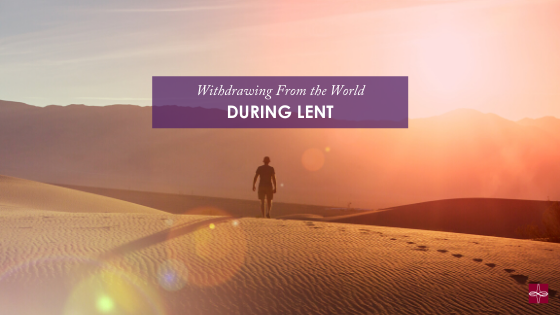

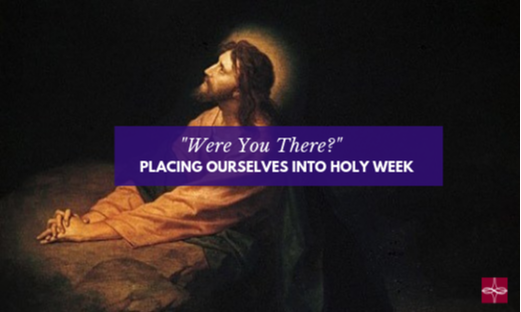

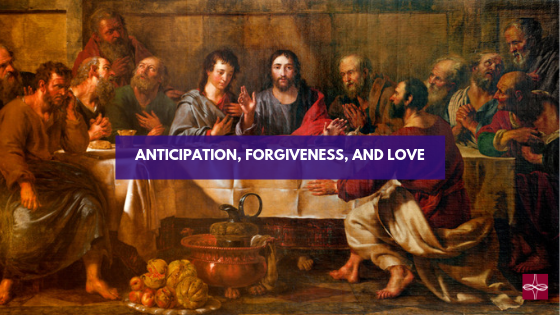

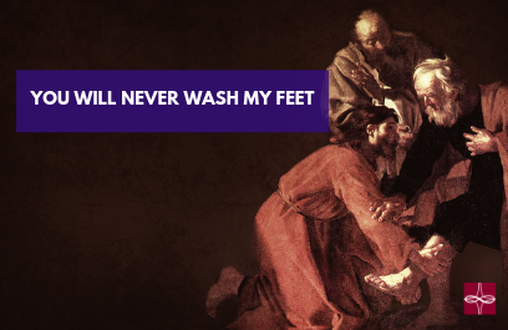

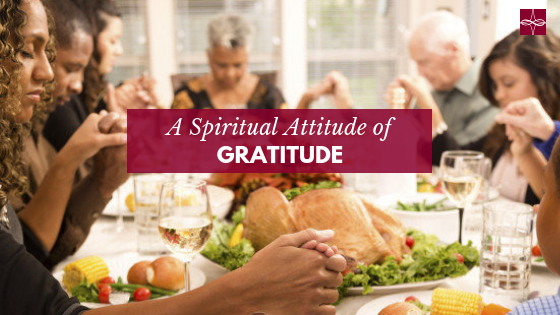

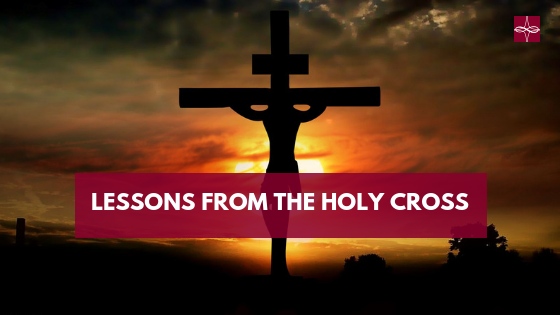
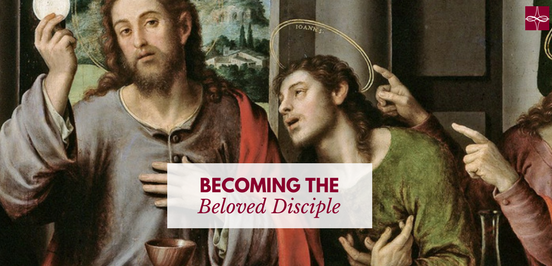

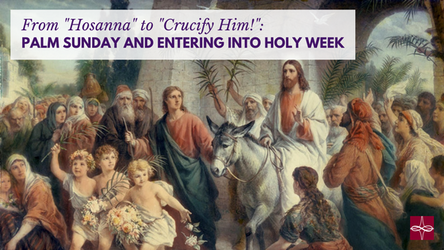

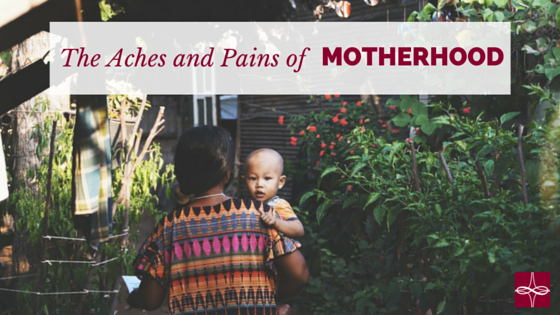

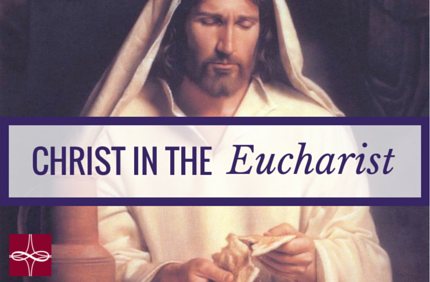

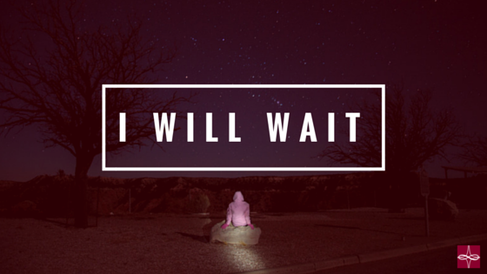

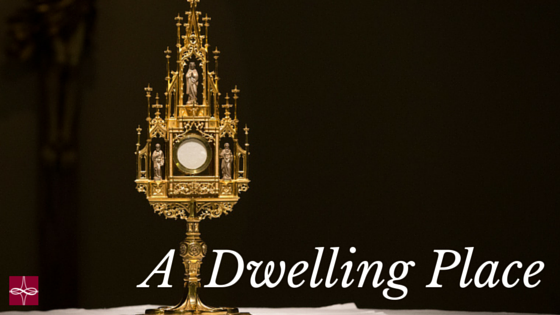
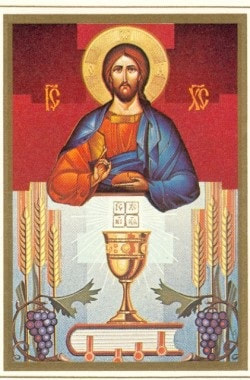
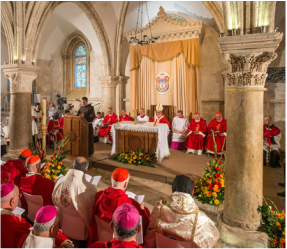
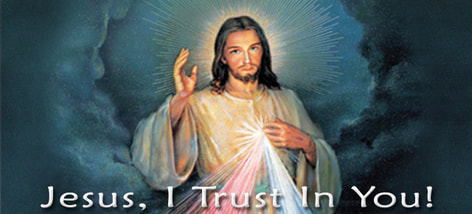
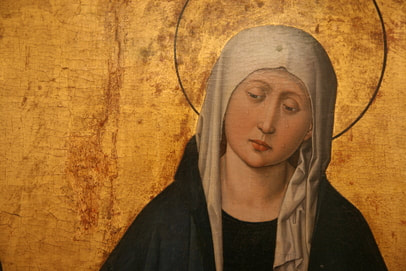
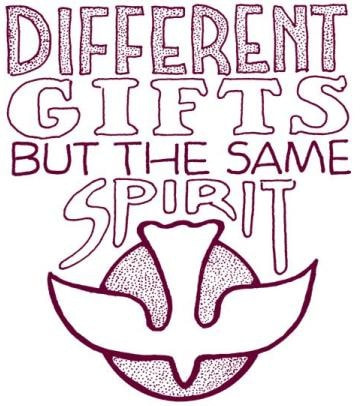
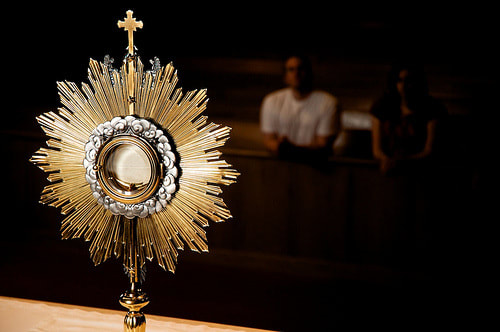
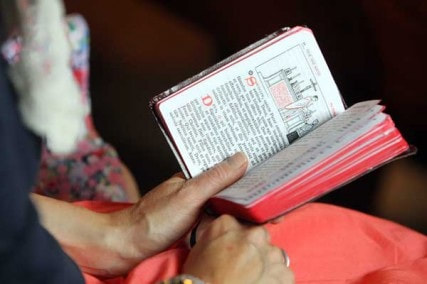


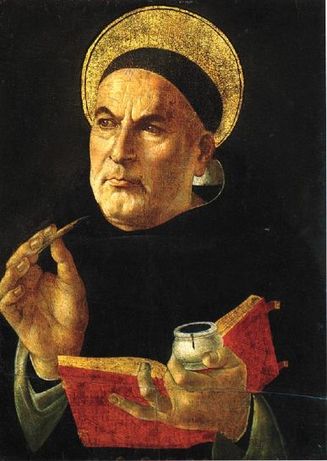

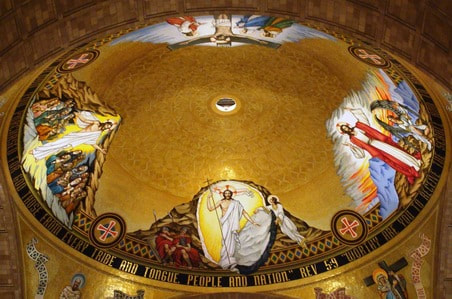
 RSS Feed
RSS Feed